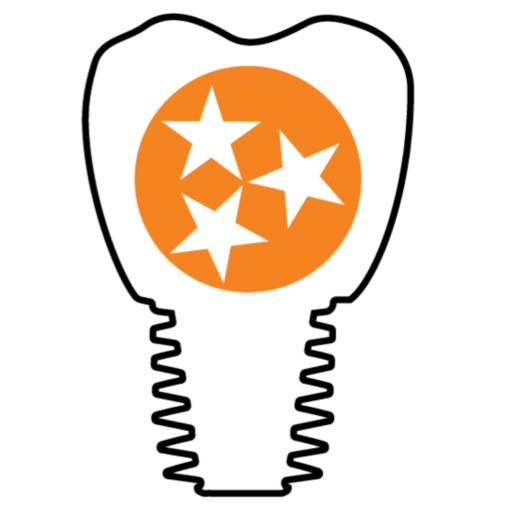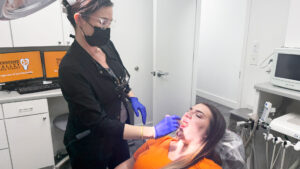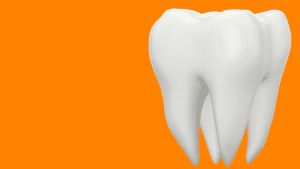Wisdom teeth, also known as third molars, are the latecomers to the dental party. Typically, they begin to emerge in your late teens to early twenties, a time when you’re presumably wiser and more experienced. But do these teeth live up to their name, or are they merely troublemakers that need to be evicted from your mouth? Let’s dive into the fascinating world of wisdom teeth to understand their role and the reasons behind their common removal.
The Role and Function of Wisdom Teeth
To comprehend the significance of wisdom teeth, it’s essential to step back in time and look at our ancestors’ diets. Early humans had a diet that consisted of rougher, coarser foods like leaves, roots, and uncooked meats. These foods wore down teeth faster, leading to tooth loss. Having a few extra molars, like wisdom teeth, was evolution’s way of compensating for this natural tooth loss.
Wisdom teeth served as replacements when the previous molars became worn or lost due to the diet and the challenges of early life. Essentially, they acted as a backup set of molars, ensuring that individuals could continue to chew their food effectively. While our ancestors found these extra molars quite useful, our modern diets have evolved to include softer, more refined foods that don’t require as much grinding and crushing. Consequently, the need for these additional molars have diminished significantly. The human jaw, however, hasn’t kept pace with these dietary changes. This is where the trouble often begins.

The Common Reasons for Wisdom Teeth Removal
As mentioned earlier, wisdom teeth were once vital for our ancestors, but their significance has waned in modern times. In fact, these late-arriving teeth often bring more trouble than wisdom. The primary reasons for teeth removal include:
1. Impaction:
Wisdom teeth may not have enough room to grow properly in the back of the mouth. This lack of space can lead to impaction, where the tooth doesn’t fully emerge from the gum line. Partially erupted wisdom teeth can create pockets where bacteria can thrive, potentially causing infections, swelling, and pain.
2. Crowding:
The limited space in the jaw can cause wisdom teeth to exert pressure on existing teeth, leading to misalignment and crowding issues. This can affect your bite and overall dental health.
3. Infection and Inflammation:
Impacted wisdom teeth are prone to infection and inflammation. These conditions can be painful and may lead to more serious dental issues if left untreated.
4. Cysts and Tumors:
In rare cases, fluid-filled cysts or tumors can form around impacted wisdom teeth, potentially causing damage to the jawbone and nearby teeth.

The Decision to Remove
The decision to remove wisdom teeth is typically made after a thorough dental examination, including X-rays to assess their development and positioning. Dentists and oral surgeons consider various factors, such as the size of the jaw, the angle of tooth eruption, and the potential for future problems when determining whether extraction is necessary.
In most cases, wisdom teeth removal is a straightforward outpatient procedure. The recovery process usually involves some discomfort and swelling, but it is a small price to pay to prevent potential dental issues.
The Timing of Wisdom Teeth Removal
The timing of wisdom teeth removal varies from person to person. Some individuals may experience no issues with their wisdom teeth and can keep them without any problems. However, many people will encounter one or more of the complications mentioned earlier, necessitating removal.
Dentists often recommend removing wisdom teeth during the late teenage years or early twenties. This age range is often chosen because the roots of the teeth haven’t fully developed yet, making the extraction process relatively more straightforward. It’s also a time when individuals can recover more quickly.
It’s worth noting that not everyone will have all four wisdom teeth. Some may have only one or two, while others might have none at all. If your wisdom teeth are causing no problems and are not impacting your oral health, there may be no need for removal.
The Wisdom in Wisdom Teeth Removal
In summary, while wisdom teeth were once vital for our ancestors, the evolution of our diets and jaw size has made them more of a burden than a blessing. The common reasons for their removal stem from their potential to cause discomfort, misalignment, and dental issues. Wisdom teeth may not make you any wiser, but understanding their role and the reasons for their removal can certainly lead to smarter decisions when it comes to your oral health.
If you’re experiencing issues with your wisdom teeth, don’t hesitate to schedule a consultation with Tennessee Valley Oral Surgery. We can help you determine your best course of action moving forward. Wisdom teeth removal, when recommended, can prevent a host of dental problems and ensure your continued oral health. Ultimately, it’s a decision that can bring long-term benefits and keep your smile radiant and trouble-free. So, if your wisdom teeth are causing pain or discomfort, remember that wisdom is in knowing when it’s time to say goodbye to these late bloomers and hello to a healthier smile.

Schedule an Appointment Today
Are you a patient in the Knoxville, Lenoir City or Maryville, TN area needing oral surgery?
Have More Questions?
Check out our frequently asked questions to get more answers about your oral surgery procedure.


















